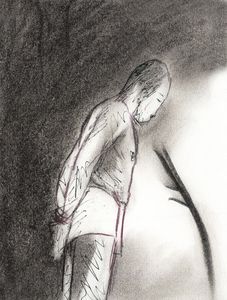Much has changed in India. But a few recent events reveal, much has not—neither in sleazy politics nor in vile casteism. Watching the degrading spectacle of Karnataka MLAs being bussed away and under police escort to thwart the predatory BJP from poaching them reminded me of the story I reported when this desperate measure was adopted for the first time—in the 1980s!
To prevent the Congress from poaching Telugu Desam MLAs, N.T. Rama Rao bussed his legislators to Karnataka. It was a pioneering idea hatched by Ramakrishna Hegde, former chief minister of Karnataka, who was determined to frustrate the Congress. He also had ambitions to unite the opposition. The MLA saga unfolded with much drama, tension, secrecy and suspense. But NTR, too, was able to safeguard his flock.
Since then, we have seen several parties—in different states, at various times—adopt this tactic. For the BJP that claims to be different from the Congress, this was not only a political defeat but also a new moral low. The Congress showed that its defence capabilities are superior to its past poaching offensives. We use words like “poaching” and “horse-trading” so much and so loosely that we have become desensitised to the grotesque reality: even today, our politicians are no better than animals, predators and preys, up for sale to the highest bidder. This is the 21st century. India aspires to be a global power. She is the world’s largest and most vibrant democracy. And yet, the undignified Karnataka spectacle testifies that little has changed in our political culture in the last 35 years.
We now have start-ups and unicorns, glitzy malls and swanky urban buildings, but politics is still a wretched jungle. And for all our progress, caste continues to be embedded in political calculations. One only has to look at how candidates are still chosen for elections in various states.
And then, there was the horrifying incident of the girl in Jharkhand who was brutally raped and burnt in her house.
Decades ago, in different states, I covered many incidents of rural atrocities and upper caste retribution against dalits. In one instance, upper caste men punished a dalit who dared to ask for higher wages by raping dalit women and setting fire to their entire village. In another instance, intercaste lovers were hanged to death. In yet another, the “offending” dalit was forced to eat human excreta.
More than modernisation, urbanisation loosened the clutches of caste. Cities provide anonymity. But not so in the villages, where people know each other and are branded. Caste still remains deeply entrenched as narrated in the book—Black Coffee in a Coconut Shell— edited by Perumal Murugan. Neither academic nor intellectual, the book is about “caste as lived experience”. The writers confirm they are sucked into the discriminatory world of caste in their villages. As Perumal notes, “There is a lot of fear in talking about caste in the public sphere….The omnipresence of caste is similar to what is seen as god’s omnipresence.” There are 330 million gods, but casteism remains a powerful demon.
India lives in her villages. And, we idealise our villages—green and serene. But they are also mean, where evils, that plagued Indian society for centuries, still persist. Translator C.S. Lakshmi observes, “The personal experiences clearly map how caste makes its insidious way into language, gestures, family, love and death and how its tentacles have extended into the politics of the nation.”
Despite decades of education, awareness campaigns and laws, the demons of caste bigotry and political skulduggery still stalk us. How do you exorcise prejudice from people’s hearts and minds? What will it take to dignify our politics? When will we be rid of these iniquities?
Pratap is an author and journalist.


